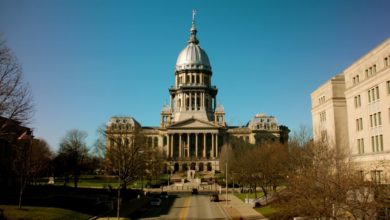Republished from RedsInEd.
In late February of 2021, the Biden administration announced its intention to mandate standardized assessments for students in primary and secondary schools nationwide. During the previous academic year, the COVID-19 pandemic and subsequent school closings prompted former Secretary of Education Betsy DeVos to issue blanket cancellations of statewide assessments. While DeVos had already indicated an unwillingness to cancel exams for the 2020-2021 school year, educators and advocates had hoped the Biden administration would not force states to administer the high-stakes exams.
Another empty promise to educators
Before taking office, Biden himself admitted that high-stakes testing was a flawed approach to assessing student learning, going so far as to say that he would no longer require states to deliver the tests. However, this statement–like so many other campaign promises from Biden–turned out to be nothing more than empty words intended to garner the votes of progressives in the 2020 election.
States–including New York, California, Georgia, and New Jersey–applied or were preparing to apply for federal waivers with regard to standardized testing for the current academic year, citing the extraordinary circumstances surrounding the COVID-19 pandemic and its interruption of formal education for young people across the country. In many major U.S. cities, school districts have not even opened their doors to students for any in-person classes, which would have posed serious risks for students, teachers, and staff alike. Moreover, the majority of students in the United States have had limited in-person learning opportunities, as most public school districts do not have the physical space to include all students while maintaining distance requirements.
Students from working-class backgrounds in the United States have been affected most by the pandemic’s impact on schooling. As schools were forced to close in 2020, students without reliable internet access at home were often left unable to communicate with their teachers, let alone participate in their own public education. Because schools are also a source–sometimes, the only source–of nutritional meals for young people, school closures meant that approximately 1 in 5 children in the United States experienced hunger or lack of access to nutrition. With schools unable to fully reopen due to the continuing pandemic, it is likely that such alarming rates of food insecurity will persist.
Mandatory assessments serve Corporations, not students
In spite of overwhelming evidence that standardized exams would not only provide limited data on student learning but would represent another destructive interruption to education, former acting secretary of education Ian Rosenblum announced in February that states must plan to deliver high-stakes assessment this year. In a letter to state officials, Rosenblum stated that standardized assessments would help states to “understand the impact COVID-19 has had on learning” and prepare “to address the educational inequities that have been exacerbated by the pandemic.”
The absurdity of Rosenblum’s statement cannot be exaggerated. First, there is no question of the impact that COVID-19 has had on student learning nor of which populations experienced the greatest disruption to their education. More importantly, the decision to mandate standardized assessments for the 2020-2021 academic year places an incredible burden on students and educators in the midst of an already unprecedented year. Even prior to the pandemic, opponents of high-stakes testing pointed to the immense pressure upon students to perform well on such exams and to the use of such assessments to punish and fire teachers of students who did not perform well.
It is important to understand, however, that the Biden administration’s decision to mandate testing is not simply a blunder or political miscalculation. Rather, it is a move in line with the federal government’s commitment to corporate interests; the motivations of the government in actuality have little to do with student well-being and much more to do with interests of testing companies that have existing contracts to produce and evaluate standardized tests.
High-stakes testing has become a multimillion dollar business in recent years. State education departments rarely produce the tests themselves but instead hire corporations to write the questions. For instance, New York State issued a five-year contract worth $72 million to Questar Assessment, Inc. in 2021. Contract amounts vary immensely from state to state; Florida, on the other hand, has paid its contractor, American Institutes for Research, an incredible $220 million dollars to develop and administer assessments over a six-year period.
The relationship between governmental education departments and testing companies is unlikely to disappear under the Biden administration. State assessments, and the resulting sale of test prep materials, provide too much wealth for the company owners to allow for the cancellation of high-stakes exams.
While not altogether surprising, the Biden administration’s decision to again mandate state testing is a clear example of how even public institutions like schools are influenced by capitalist interests. There is no social imperative for identifying data which already exists establishing that students’ learning has been disrupted by the pandemic and that schools require a massive increase in funding to serve working-class families. A public educational system should never be influenced by corporations or the drive for profit!





